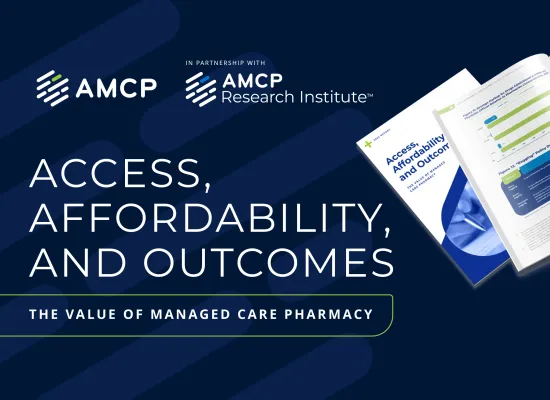-
What is Managed Care Pharmacy Webinar
-
What Do Managed Care Pharmacists Do?
-
Managed Care Glossary
-
Managed Care Pharmacy Presentations
-
Fundamentals of Managed Care Pharmacy
-
Value of Managed Care Pharmacy Report
-
Roadmap to a Career in Managed Care Pharmacy
Managed Care Pharmacy Primer Series
The Managed Care Pharmacy Primer Series on JMCP.org offers comprehensive context and breakdowns, helping you grasp essential concepts in managed care pharmacy. From unraveling the complex reimbursement landscape to understanding the dynamics between participants in the drug supply chain and the connection between drug costs, medication use, and health outcomes, these primers provide digestible insights for informed decision-making.
- Introducing the Managed Care Pharmacy Primer Series
- Primer 1: Managed Care Pharmacy
- Primer 2: Brand-name Prescription Drug Reimbursement
- Primer 3: Formulary Structures and Strategies
- Primer 4: Quality Measurement and Reporting in Pharmacy Benefit Plans
- Primer 5: Brand-name Prescription Drug Contracting
- Primer 6: Cost-Shifting Strategies
- Primer 7: Prescription Drug Pricing Benchmarks in the United States
- Methodology for Conducting a Comprehensive Product Review
These Primers are funded by AMCP Foundation. View the video overview or learn more about the Cahill Fund and how to support future education and research programs.
Managed Care Pharmacy Principles
Managed care pharmacy professionals develop strategies for patients, health plans, and providers across five key areas:
Pharmacy Benefit Design & Implementation
- Ensuring access by defining where care is available.
- Determining which treatments are covered based on individual and population needs.
Formulary and Medication Utilization Management
- Identifying which medications to include in the formulary.
- Introducing and applying new and existing drug management strategies and tools.
- Tracking new and developing medications.
Clinical Programs
- Managing coordinated care programs.
- Conducting drug utilization reviews.
- Implementing initiatives to address health disparities.
- Completing medication therapy management.
Quality & Safety Program Management
- Assessing and reporting on quality measures.
- Reporting Medicare Part-D “star rating” measures.
- Managing drug shortage & safety programs.
Promoting Affordability
- Reducing risk for individuals, employers, and other public payers by managing overall cost.
- Protecting against misuse, overuse, and fraud.
- Promoting value-based care.






